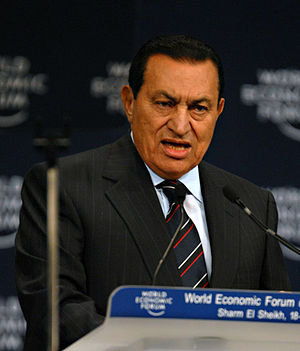Facebook usage in Pakistan research:
I was recently studying searching and surfing habits of
Internet users from
Pakistan online and where they usually go to for getting information online and am sharing some of the statistics and knowledge gathered about Pakistan's use of Facebook across various sectors and segments. I also dug deep into how
Pakistani companies and brands were using Facebook to promote their services or build relationships with their customers and fans but I will share that information in my next post.
Global statistics:
According to www.facebook.com's global statistics page
here, over 500 million users are active out of which
50% log on to Facebook in any given day. An average Facebook user has 130 friends and people tend to spend over 700 billion minutes per month on Facebook. The time is usually spent around over 900 million objects that people interact with including pages, groups, events and community pages whereas an average user is connected to 80 community pages, groups and events.
The average user also creates 90 pieces of content each month sharing more than 30 billion pieces of content including web links, news stories, blog posts, notes, photo albums, etc. Facebook is now hosting more than 70 translations its website thus about 70% of Facebook users are outside the United States and over 300,000 users helped translate the Facebook website through the translations application. Facebook also shares that more than 200 million active users of Facebook are accessing the website through their mobile devices constitute twice the population than non-mobile users and 200 mobile operators in 60 countries are working to readily deploy and promote Facebook mobile products
Asian Internet usage statistics:
According to the
Facebook statistics page on the Internet World Stats website
here,
Asia as of 2010 has an approximate population of 3,834,792,852 out of which 828,930,856 are Internet users and out of these 93,584,580 are Facebook users. This represents a 2.4 % (as of August 31, 2010) Facebook Penetration in Asia. The ratio of Facebook users in relation to the total number of estimated Internet users in each country or world region for Asia stands at 11.3%. The total Internet Penetration in Asia stands at 21.6%.
State of Internet usage in Pakistan:
The current registered population of Pakistan stands at 177,276,594 as of 2010. The country is spread out over an area of 880,254 sq km. In the year 2000, Pakistan only had 133,900 Internet users but today Pakistan has over 20,350,000 Internet users as of Jun 2010 with a 11.5% penetration as per ITU statistics. ITU also reports 168,100 broadband subscribers as of June 2009. The Internet user growth rate between 2000-2010 has been 13,716.3 % and constitutes of about 2.2 % of the total Internet users in Asia. Thus the Internet penetration rate according to percentage of total population is an approximate 10.4 %.
According to the
Pakistan Telecommunications Authority PTA as reported by
ProPakistani.pk here, the latest statistics for Broadband subscribers in Pakistan stand at 10,00,000 (1 Million) respectively. There were1.052 million broadband subscribers in October 2010, up from 994,911 subscribers in September 2010. DSL companies added the most subscribers for broadband and stood at 516,167 subscribers in October 2010, up from 488,946 in September 2010.
EvDO service providers totaled 15,540 subscribers in one month, while
WiMAX companies added a total of 14,066 subscribers in the month. Total number of WiMAX subscribers in the country has hit 306,665 mark, up from 292,599 a month ago. According to ProPakistani.pk, DSL remains the top technology used for broadband internet in the country, while WiMAX stands seconds. EvDO is swiftly adding its share for the broadband subscribers.
State of Facebook keyword search on Google by Pakistani Internet users:
According to Google insights for search terms
here, Facebook remained the third highest search term searched by Pakistanis through Google.com over the last 12 months. It also remained the second highest searched term for the past 30 days
here from 7th January to 7th February 2011 and during the last 7 days, it remains as the third most searched term on Google from Pakistan
here with the Internet user population of the city of Lahore in Punjab, Pakistan standing as the highest searching region for this search term.
Pakistan amongst top global 30 Facebook user countries:
Pakistan remains at the tail amongst the 30 fastest growing Facebook user countries in the world at position number 29 as of 7th February 2011.
The total number of Facebook users in Pakistan are 3,65,3140 adding a total of 1,448,920 users in the last 6 months depicting 39.66% growth and penetration at 2.06%. During the past week, over 45,280 users have joined Facebook from Pakistan depicting a 1.24% growth.
Pakistan's 3,653,140 Facebook User Population's Age and Gender Distribution:
- 4% Pakistani Facebook users are between the ages 13-15 = 146,126 users
- 6% Pakistani Facebook users are between the ages 16-17 = 219,189 users
- 52% Pakistani Facebook users are between the ages 18-24 = 1,899,633 users
- 29% Pakistani Facebook users are between the ages 25-34 = 1,059,410 users
- 6% Pakistani Facebook users are between the ages 35-44 = 219,185 users
- 1% Pakistani Facebook users are between the ages 55-64 = 36533 users
- 1% Pakistani Facebook users are between the ages 65-+ = 36533 users
The 3,653,140 Pakistani Facebook user audience's
Gender distribution comprises of:
- 68% Males
- 32% Females.
 Image via Wikipedia
Image via Wikipedia




